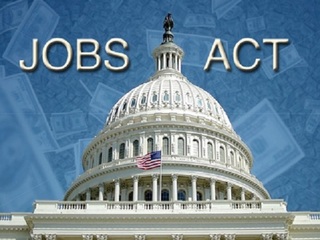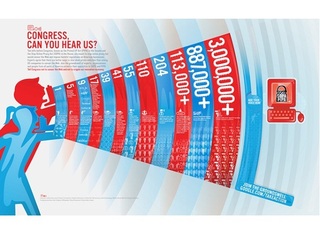Trump rescinds Biden executive order on artificial intelligence
The EO set AI safety and security standards and called for a report on AI's impact on labor
Read more...
With the presidential race finally underway now that Romney has picked Paul Ryan as his running mate, voters finally have a chance to look clearly at the choice, and see which candidate will most benefit them, including Silicon Valley.
So how does the voting record of the newest man in this race hold up when it comes to voting for bills involving technology and communication?
Ryan has a two-to-one record of voting for bills regarding the technology sector, with 20 yea votes and 10 nays in key technology votes going back to the beginning of his congressional career in 1999, according to VoteSmart.org.
Many, but not all, of Ryan's votes are in line with the positions of those in the technology business.
What Ryan has supported:
Ryan has voted in favor of technology bills, such as NASA Authorization and for the Reduction of SPAM bill, though his votes to defund National Public Radio, and for the reauthorization of the Patriot Act, are sure to be viewed strictly along political lines.
When it comes to Silicon Valley, though, Ryan has mostly voted in line with its positions.
Ryan voted in favor of the Fairness For High-Skilled Immigrants Act, which got rid of caps on immigrants from certain countries, which would have limited the number of highly skilled immigrants coming from places like China and India.
He also voted for the Jumpstart Our Business Startups Act (JOBS), which eased restrictions on start-ups, creating a new category of companies known as “emerging growth companies”, which allowed them to withdraw their IPOs without having to divulge private information as long as they made under a certain amount of money.
The bill also eased restrictions on crowd funding, allowing start-ups to advertise that they're seeking investment, and also allowing them to raise money from as many investors, accredited or non-accredited, as they can.
Both the JOBS Act, and the Immigrants Act, were popular among the tech sector, as they would both ease restrictions and regulations that would only serve to hamper a technology company's ability to grow.
What Ryan has opposed:
Ryan has voted against the Stimulus Bill in 2009, infrastructure spending, and Trade-in Vouchers for Fuel Efficient Cars, votes that will, once again, be shaded by ideology.
By opposing the highly controversial Stop Online Piracy Act (SOPA), Ryan was again voting with the tech sector.
SOPA would have given the government more powers to censor parts of the Internet, without first requiring going before a judge. The bill was opposed by major tech player, including Facebook. Wikipedia, BoingBoing and Reddit participated in a media blackout as a way to protest the bill.
In regards to the bill, Ryan is quoted as saying, "The internet is one of the most magnificent expressions of freedom and free enterprise in history. It should stay that way. While H.R. 3261, the Stop Online Piracy Act, attempts to address a legitimate problem, I believe it creates the precedent and possibility for undue regulation, censorship and legal abuse."
But Ryan has also opposed certain things that are popular in the tech sector, including Pell Grants and tech funding.
Ryan supports cuts to Pell Grants, which can help fund the education of those who go on to become some of the nation’s top innovators, though some would point to Bill Gates, Mark Zuckerberg and Steve Jobs as example of people who made in spite of, or because of, their lack of higher education.
Ryan has also voted against Science and Technology Funding, something that is supported many in Silicon Valley. While government funding is not entirely necessary, it has been very useful when it comes to the creation and advancement of new technologies, such as the Internet.
Overall, Ryan has a good record of voting in line with the tech sector, though his opposition to Pell Grants and Technology Funding may chip away at his support.
(Image problem: politico.com)
The EO set AI safety and security standards and called for a report on AI's impact on labor
Read more...The agency also published draft guidance on the use of AI in drug development
Read more...The biggest focus areas for AI investing are healthcare and biotech
Read more...


